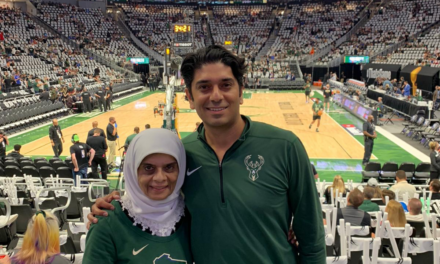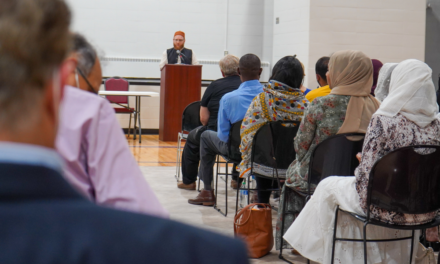[stock photo by PNW Productions]
A nutritional approach to re-introduce food into the system during suhoor and iftar can help manage energy levels during Ramadan.
Muslims around the world practice intermittent fasting during Ramadan, and anyone who’s been through it knows fasting can be as challenging as it is rewarding.
Iftar is the evening meal when breaking the fast and suhoor is the pre-dawn meal.
Following a few general nutrition guidelines and discovering what works best for each individual person is key to a fulfilling fasting experience filled with health and spiritual benefits.
“We need energy for Ramadan to remain spiritually focused and so it’s very important we have the right fuel in our bodies,” says Asma Ali, a Board Certified Nutrition Coach who received professional training and certification from the Institute of Integrative Nutrition in New York. Her business, Beetroot Wellness offers personalized nutrition coaching and wellness workshops.
Ali says the influx of research conducted on fasting in the past 15 years produced valuable information.

Asma Ali, Board Certified Nutrition Coach
“Fasting has become more mainstream and so there is a lot of new research saying the health benefits of fasting are amazing,” says Ali.
“For Muslims during Ramadan, fasting also builds gratitude and brings family together. The best thing you can do during this is to provide your body with what it needs.”
Skip the sugary stuff: suggestions for suhoor
According to Ali, starting the day with foods that are high in protein and fat provide higher energy levels and lower cravings. Protein helps the body stay full longer because it takes much more time to break down and digest. Fats provide energy and help the body absorb nutrients.
“I usually open with water and a date and then fiber cereal with full-fat milk, boiled eggs, avocado toast or steel-grain oats,” says Ali. “Yogurt, nuts, seeds and fermented foods are also very good for suhoor.”
As tempting as a muffin or donut may be, Ali says to avoid high-sugar and high-in-refined-carbohydrates foods in the morning as much as possible. These foods spike blood glucose levels and leave people feeling hungry just a few hours after eating.
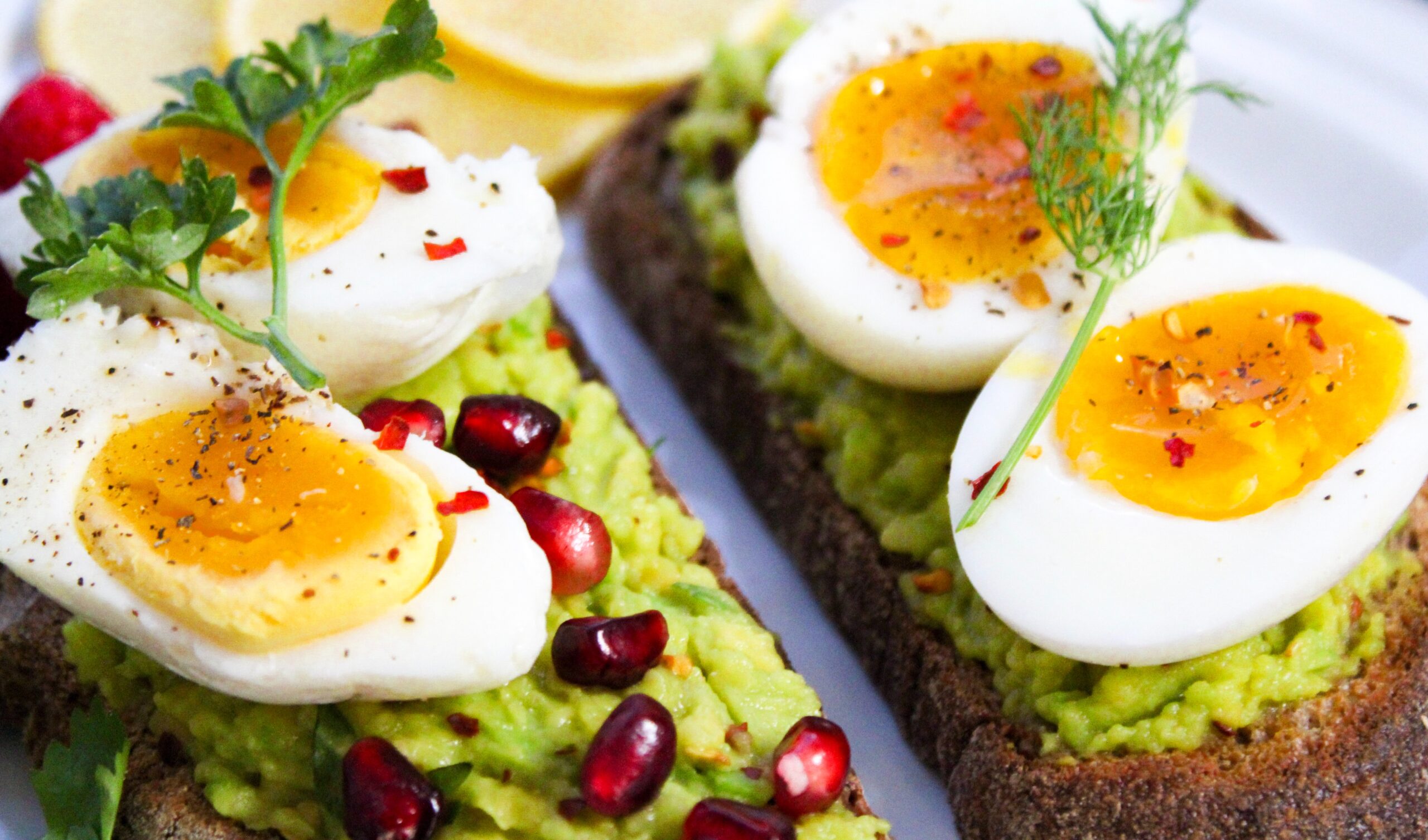
[stock image by Jane Doan]
Nutritionist Asma Ali recommends good fats and protein found in eggs and avocado toast for the first meal in preparation for fasting.
Ali also warns against skipping suhoor.
“Your body needs good food at suhoor to stay energized during the entire day,” she says.
Invigorating iftars
When breaking the fast in the evening, Ali strongly recommends consuming protein and carbohydrates, but dialing back on fat intake and limiting deep fried food.
“Even though the body craves fatty food after fasting and we have so many delicious traditional fried foods, we should limit our intake,” says Ali. “We should not deprive ourselves, but consider smaller portions or pan fry some food or limit ourselves to fried food every other dinner.”
Filling up primarily on chicken, fish, rice, lentils, tofu and vegetables is ideal. Ali says she usually takes a break between courses.
“I open with a date or fruit and water. Then I will pray. And then come back and sit down for the rest of the meal,” she says.
Avoiding indigestion
Indigestion, particularly heartburn, is common during fasting. Ali says it comes from eating too many fried foods, eating at unusual times and / or not spreading out water intake.
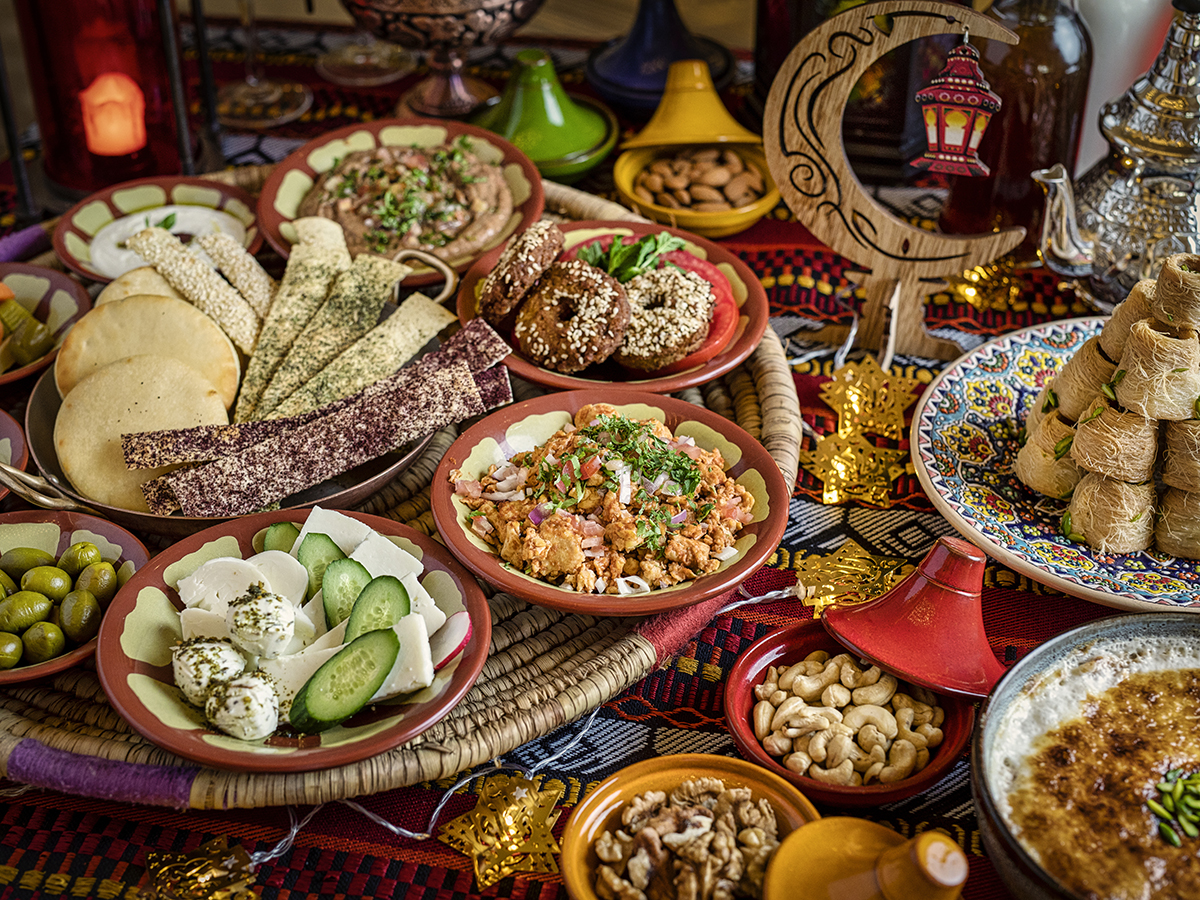
[stock image by LNC]
“It’s important to stay hydrated, but not by drinking multiple cups at one time. It’s better to spread it out over a few hours,” says Ali.
To counter indigestion, Ali recommends taking digestive enzymes and probiotic supplements with meals. Fermented foods like yogurt, also help with healthy digestion.
“Try to eat food that’s easy on the stomach, like gently cooked rice, fish and lentils,” says Ali. “Add new foods. Don’t keep eating the same food. Switch things up.”
Fasting and fluids
After abstaining from water for many hours, it’s important not to drink too much too quickly. Ali also advocates adding electrolytes to water.
“Water can actually take out trace minerals that we need,” says Ali. “Adding good electrolytes can help with this. There are several good choices on the market such as, LMNT Electrolyte Mix.”
Carbonated beverages like soda are hard on an empty stomach and other soft drinks and protein can be too sugary and filling.
“Fill yourself up with good food, rather than beverages,” says Ali.
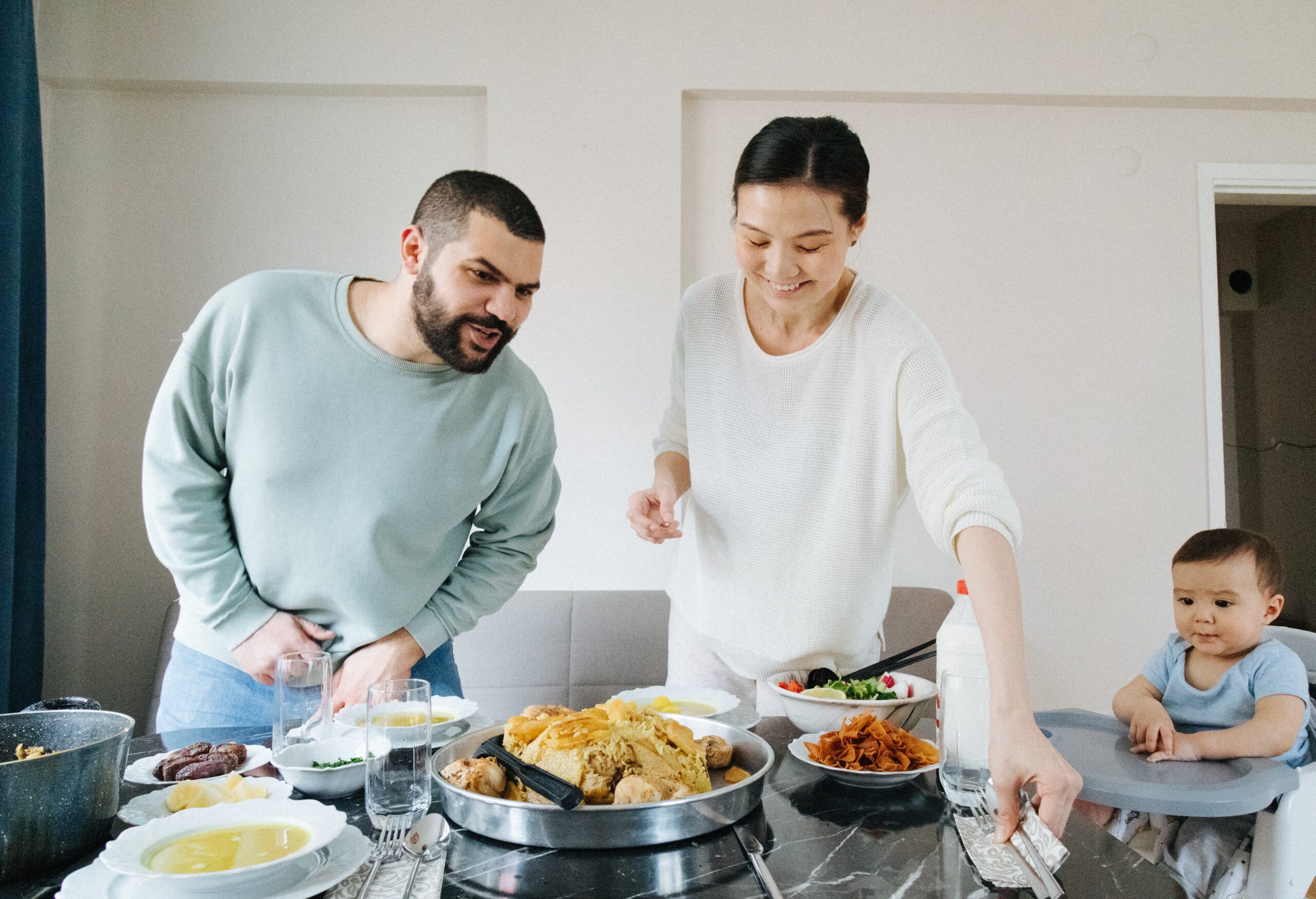
[stock image by Meyuyert Gonullu]
Many people struggle with caffeine during Ramadan. Ali doesn’t recommend quitting cold turkey, which can lead to headaches and irritability. Instead, if caffeine is essential, she suggests drinking small amounts during suhoor rather than iftar so it doesn’t disrupt much-needed sleep.
In the evening she recommends caffeine-free alternatives like mushroom or date seed coffee.
Ramadan is not a diet plan
Sometimes people think a benefit of fasting during Ramadan is that they’ll lose extra weight. This is rarely the case nor should it be a goal.
The reason for not restricting caloric intake during Ramadan is simple: it depletes energy.
“The month of Ramadan is not the time to focus on weight loss or engage in extreme exercise. Instead, it’s a time to dial those things down,” says Ali. “There is plenty of time to do these things during the year, not during 30 days of fasting.”
Listen to your body
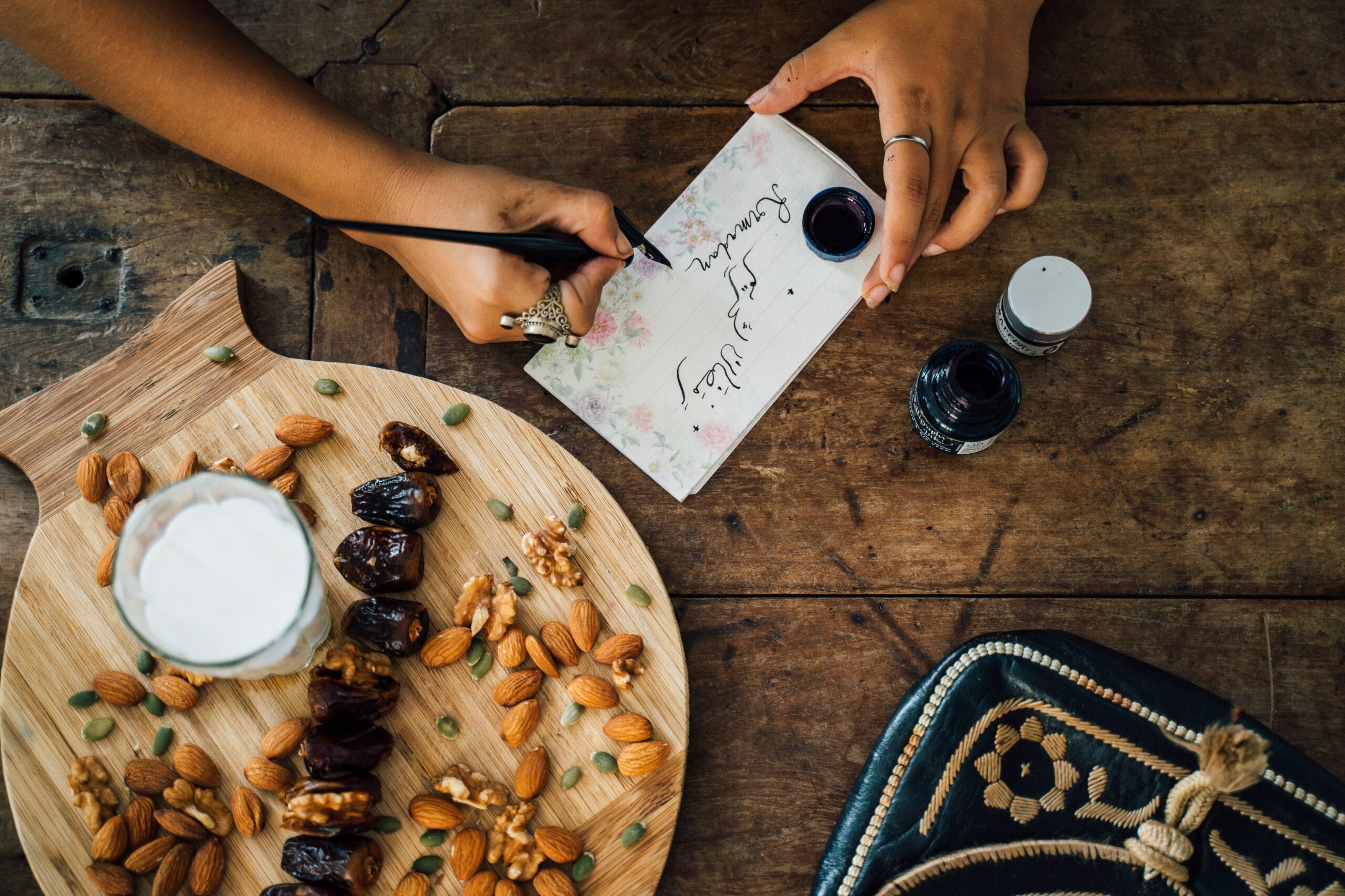
[stock image by Anna Tarazevich]
Fasting puts stress on the body, and even though it’s a good stress, it is still something to consider.
Many people with health issues refrain from fasting, but healthy people should consider closing their fast if they feel dizzy or unwell.
Although there are many benefits to fasting, an unwell person will be unable to participate in spiritual and social activities.
This is a concept that extends beyond Ramadan and something Ali learned first hand.
“My own struggle with hypothyroidism, small intestinal bacterial overgrowth (SIBO) and rosacea led me to this path of healing. I find great satisfaction in helping people achieve their health goals by making dietary and lifestyle changes,” says Ali. “It’s important to fuel your body right –especially during Ramadan – so you can perform all of the duties more effectively. Happy fasting.”
Follow Asma Ali on Facebook at Beetroot Wellness
and Instagram. https://www.instagram.com/beetrootwellness/
Or visit her website: Beetroot Wellness
Asma Ali will be the featured speaker for the next Milwaukee Muslim Women’s Coalition’s Networking Brunch on Friday, May 26 from 10 a.m. to 12 p.m.
The event is held at the Islamic Resource Center, 5235 S. 27 St. in Greenfield. Registration is required. For more information on the brunches and other MMWC events, visit us on Facebook or subscribe to receive email updates.

[stock image by Thirdman]

